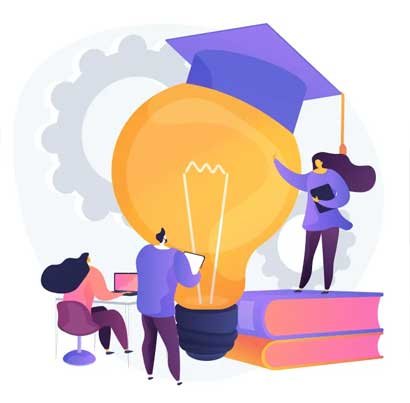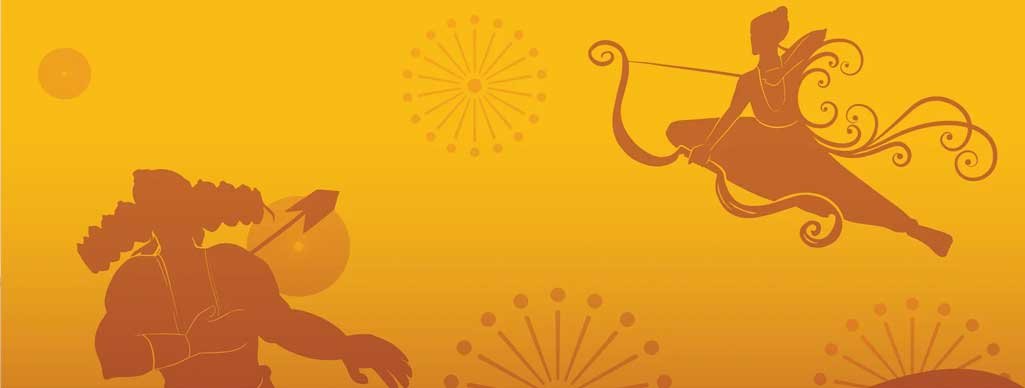
Neelesh Khulbe, HPCL
khulben@hpcl.in

MY INITIATION TO LEADER COACH
I accidentally came across an opportunity to invest in my own development when my reporting officer offered me to enrol into a programme aimed at developing competencies as a coach. My initial thoughts were that it would be like any other training programme and where certain subject knowledge would be imparted.

INITIAL CHALLENGES & UNDERSTANING CONCEPT OF COACHING
It was around June 2021 last year, since I was first initiated into taking up the challenge to become a coach.
At the time of enrolment, as I understood the journey will consists of certain hours of digital learning, participation in virtual workshops and tele classes, Group mentoring, peer coaching & client coaching. Beyond that I had no idea about coaching as a process and also no idea as to how coaching competencies would be developed.
The first challenge encountered was in the understanding the difference between Training, Coaching, Mentoring, which in all these years as HR professionals were being used by me interchangeably. A deep thoughtful understanding of the subtle difference between Training, Coaching, Mentoring facilitated in me a deep insight about the purpose of coaching.
An interesting thing, which was quite early absorbed by me was that in the coaching process, the ownership rests with the coachee and the need for subject matter / domain expertise on the part of Coach is quite low, except in certain cases of contextual understanding which is contrary with the requirement of Training. When I was initiated to coaching mindset, the mindset w.r.t. giving ownership and being non-judgemental was difficult to start with, as years of conditioning had engrained in me an inclination towards taking ownership of the team, readily offering preferred options and at times being judgemental about the people. Getting over these two aspects, required a lot of practice and perseverance. Other aspect of coaching mindset i.e. having forward orientation and sharing instead of advising was much easier to come.
As regards key competencies required for an effective coach i.e. designing relationship, building trust and intimacy, having coaching presence, listening to understanding , effective questioning
, etc the most challenging was listening to understand and effective questioning. A great deal of practising during the client coaching and taking feedback from clients enabled me to transcend from perceptive to intuitive listening. As an effective coach, it dawned on me that to be an effective coach, the listening is to be transcended from perceptive level to intuitive level.
The other challenge in the area with the key competencies was in the area of effective questioning and also in ensuring coachee removes his/her limiting beliefs which enables him/her to discover new possibilities and develop their own solutions with action plans.
The effective questioning actually did miracle in most of my coaching sessions, like it fostered ownership in coachee, encouraged coachee to remove his limiting beliefs, enabled coachee to develop his own solutions and moved coachee to take action which I had witnessed during course of coaching journey in many coaching assignments.
While encountering this challenge, I saw myself gaining confidence and clarity about the coaching process which facilitated me in navigating through the coaching.
Years of practising as HR Practioner made me skewed towards transactional mind set and this experience of navigating and addressing challenges of coaching made me discover myself as more creative and thoughtful person than what I had believed all these years.
Practicing as a Coach – Leader As regard starting point of Coaching –
Understanding of certain psychometry tools like HARRISON ASSESSMENT which basically is about diving into the innate traits of an individual was a very good starting point to understand a coachee.
Another tool which is of interest to me in understanding the coachee is JOHARI WINDOW. As it gives an insight into the unknown areas of personality
of coachee for which certain supplementary tools MBTI can be used to further explore coachee.
The enjoyment Preference Theory was another interesting concept which is based on paradox theory. A contradictory statement may be applied in constructive way also for eg.
frankness and diplomacy, which initially may seem contradictory but if used by a good communicator may result in communicator being high on frankness as well in diplomacy.
Practising of some of these paradoxes initially was a bit confusing which later on turned out to be a joyful and meaningful learning.
Apart from above, I also believed that to be an effective coach, the coach needs to invest on his/her self development and towards that I myself tried to invest in myself, wherein I consciously tried to be free from my own issues while being with the coachee. I also ensured that during the coaching I am not weighed down by the coachee’s personal problems and his/her emotions.
Having gained confidence that I was interested in coaching, I started taking deep interest in the various processes of coaching as introduced during subsequent modules. I had carefully gone through steps involved in the process. All processes have same steps in common
i.e. establish the focus and define future state which coachee wants to aspire, remove self limiting beliefs, develop strategic options, decide on meaningful actions, identify potential barriers, work out contingencies, take action, continuous review.
Use of perceptual positioning technique was found to be useful while working on ‘interpersonal relationships’ agenda of a coachee. Here
to start with various positioning that makes client see the situation through his/her own agenda and then making him/her see the situation through the eye of person he/she is interacting and than making client see the situation through eye of observer and the person he/she is interacting was difficult to come in.
While practicing these positions in the initial 2 – 3 sessions, my coachee/client mixed up the position of observer and the person with whom he/she was interacting. Later on when understanding of these positions were perfected, the various options for the Agenda of coachee which came from coachee, surprised and amazed me and I could realize the power of this technique.
The exposure to concept of Pyramid of Influence was a revelation to me. Behaviour which is an outcome of one’s value, beliefs and capabilities was used by me in couple of coaching sessions while addressing some of the beliefs of coachee. The reflection of coachee on the outcome of his belief system was tried to be exploited. Coachee while reflecting on some of the past outcomes arising out of his belief system was convinced to revisit some of his beliefs, which in turn helped him in making better choices for himself.
I also realised the powerful effect of the use of metaphors while coaching.
I found that metaphors are wonderful descriptive tool for communication that can inspire a clients/coachee.
It is an acknowledged fact that our thoughts process go beyond our conscious understanding and hence coachee while relating to metaphors gives a different perspective into how one imagines the world in his/her own way. The world around us has tangible items, still we have got our internal perception about certain pattern/shapes , etc, which are basically metaphors for an experience.
One of the renowned psychologist , Carl Jung almost concluded that by connecting with a unconscious , we have got much wider access and comprehensive understanding of ourself and also of our relationship with wider world around us.

“Metaphors as an insight for Coaching”
As a tool for coaching, the client if prompted to use metaphors can come with a different perceptive. In one of my coaching session with, one small agenda of
the coachee was “I want to get relieved of this issue”. At that point of time, I further prompted/inquired as to “What kind
of relief” he wants to experience. The client at that point of time came up with metaphor that after climbing a hill, when suddenly the plateau comes that kind of relief.
At that point of time , I further encouraged him to
experience the relief on reaching the plateau and then connect it with his end objective or agenda.
One of the other advantage which I find by using metaphors was that the language and communication used with metaphors is mostly “Clean language”. Client do not carry any baggage of the words and hence words of Coach do not contaminate coachee’s mind/perception and he directs his attention towards the symbol/ effect
coming out of the metaphor without any distraction of language/word.
In one of the coaching session where the agenda was “to aspire for a higher post”, one of the metaphor used by coachee was “I Want to touch the sky”. At that point of time, the coachee was prompted“How far you want to go into the sky” . He was also told to imagine himself already high in the sky and what was his experience and also how he wanted to translate that experience to his current aspiration of reaching higher post.
The metaphor as a tool was also used by me during my coaching session , to unlock situations where not may ideas were coming from the client . When prompted to use of metaphor, the whole pattern of conversation with coachee becomes interesting and useful.
Story Telling – As a Tool for Coaching
Another powerful coaching tool which was used during coaching by me was story telling. I understand that story telling technique is a distinct tool not used very often worldwide, as many coachees are of opinion that since each context differs, their relatedness to coachee’s agenda reduces. While using story telling as a coaching technique, I however found that it is an effective means of communication with my coachee. During my coaching session, I believed that by illustrating real life situations, the clients may be prompted to come out with different alternatives to his agenda rather than by using technical coaching methods. In one of the my coaching session, where the client had to struggle to find out what he wanted from his career and was not able to crystalize his big agenda, I shared with him real life story where a person was in similar dilemma and had similar kind of challenge and came out triumphant with his endeavours.
After this story telling, my client was able to come out with clear cut agenda about his career objectives and it also helped in a way to come out with viable options contextualised with his own situation.
Another technique was, reflection and reframing a coachee’s experience. In one of the coaching session while reflecting on self narration of his progress, the coachee saw what was actually unfolding while he was exercising various options as chosen by him in the past.
One of the actual event which comes to me was when one of my clients was struggling to cope up with completing course assignment in one of his courses which was very vital for his career. At that point of time, I asked coachee to reflect on his progress of last two months and asked the coachee himself to identify positive changes he had made. The coachee after reflecting on his own endeavours towards his progress grew more in confidence, which helped him in going through the rest of the plan alongwith time lines. When the client reflects on his story, he uncovers unspoken motivation which otherwise would have been difficult to decipher.
In another coaching session, I asked coachee to step back and describe his role in missing some of the milestones of the action plan and also share his experience on missing those milestones. The narration itself was a powerful tool for bringing self awareness in the coachee.
For me the use of metaphors and story telling alongwith ‘SOAR’ model and using ITOCA were used very effectively where coachee / client had an aspirational agenda.
Various peer coaching and client coaching instilled great degree of confidence to approach a coaching in a professional manner. I also started a series of PROBONO coaching with my immediate acquaintances, some of my subordinates and peers.
I saw my clients gaining from the coaching session in terms of taking ownership developing various options and coming out of action plans with time lines which makes me more joyful and progress of coachee as observed by me in subsequent sessions acted like a catalyst for me.
The engagement and connections during client coaching were incredible experiences while also experiencing challenges associated with it. For practicing some of the skills, I invested in watching coaching videos and concentrate on reflection of coachee. At times that reflection were tiring and exhausting. I realised slowly that it involves training of the mind.
I started recognising changes in my behaviour and in a state of adaptive unconsciousness I realised that I can connect with people with choice of words and can genuinely feel connected with agenda of clients and sometime with their vision also. During one of the coaching session, the coachee started with an agenda of getting into top Leadership Role in the next 4 – 5 years.
As regard enriching myself from various book readings, the Book i.e. ‘Coach the Person, not the Problem’ by Maricia Reynolds was a guide to using reflective inquiry. This concept of Reflective inquiry and it’s understanding helped me in making client think about the situation in a deeper way and see things in new light which helps client in developing new perspectives.
Among various books which were part of course, the one authored by Marshall Goldsmith ‘What Got You Here, Won’t Get You There’ was most inspirational for me. This book signals that how the habits, one have gained so far in the career and brought success, may delay one’s further progress.
OBSTACLES DURING PRACTICE & OVERCOMING THEM
However, during the coaching, I still face certain obstacles :- During Coaching of Internal Client –
While the coachee could crystalize on his agenda very specifically, when it came to exploring options alongwith the definite action plan and timelines, the coachee being an internal client looked towards me for the preferred solution. Since as per his perspective, I was already in the position he was aspiring to. This session which was my initial coaching
practice session, I was almost tempted to provide certain leads for arriving at options.
However, I could control my temptation of offering the solution by reminding myself that what worked for me may not work for my coachee, as the context may be different and most importantly the capabilities, the values and belief system of my coachee are different.
Later on, in my subsequent coaching session , this behaviour of giving ownership to the coachee and being non-judgemental in my approach state of adaptive unconsciousness, was smoothened
by my subsequent coaching practices and provided me a lot of coaching muscles.
While coaching internal employees, the coachee many times views this exercise as a Performance Management exercise and tends to provide politically correct answers instead of exploring himself/herself . This approach limits direction for further coaching inputs.
second challenge is in the area of practising effective questioning – which however comes with practising more coaching sessions.
Another obstacle which I have been that when the coachee not able to come out with options and from his / her prolonged silence, the same impacts the quality of the coaching. Sometimes where the coachee is less experienced, he/she instead of coming out with options, looks for certain preferred solutions.
Avoiding stalking of questions did not come to me naturally and required lots of practice, sometime frustrating me.
I have now certain SOPs which I practice on a regular basis :
At the start of any session, I encourage the coachee to come out with his exact agenda and also encourage her/him for explaining the situation in the context of his/her agenda. During subsequent sessions I take brief of the previous session, where the difficulty faced by the coachee in coming out with options and his/her way forward with action plan are also focussed.
Towards the end, I would say that the inputs provided during coaching process culminated into exploring certain areas of my personality i.e. creativity & inducing inspirations on others. Certain competencies which are being practised by me as a coach, and certain aspects of coaching mindset that is giving ownership, being non-judgemental, developing trust and intimacy, is also helping me as a practising Manager and I am looking forward to taking coaching in a big way, atleast with internal client which will juxtapose with my current leadership role in the organisation.
SUMMING UP OF MY JOURNEY
To sum up my journey, my major and key learnings can be summarised as :-
1. The challenge to overcome unconscious incompetent i.e. not knowing, what I don’t know. This awareness helped me in embracing coaching mindset and develop coaching competencies. The shift from ‘unconscious incompetence’ to ‘conscious incompetence’ was awakening and made me realise my ‘blind spots’.
2. The second learning was to understand & internalise the difference between training, Mentoring & Coaching in terms of objectives, processes, mindset and competencies.
3. Another learning was to develop a deeper understanding of necessity for others to find options/solutions for their agenda. The intrinsic propensity to offer preferred solution was hard to curb and developing intrinsic resistance to empathize with other’s issue required lots of practice and perseverance.
4. Other step was to expand my horizon and span of coaching to address new people and new situations, which will also serve as a reminder to me that ‘I’ve still lot to learn’ i.e. always ride the learning curve.
5. Having gained confidence in coaching variety of people addressing various kind of issues, the next step is to capitalise the confidence in building up my interpersonal skills.
THE FINAL REFLECTION
The journey brought out my creativity and thoughtfulness, which was buried inside. The whole load of self doubt and anxiety which was there during the initial coaching process is now transferred into a confidence. During the process of coaching, I allowed part of myself to be non-judgemental and allowed coachee to take ownership of their issues.
At times when asked to clients about the situation he / she was in many times, I found them to be a bit confused and feeling awkward & frustrated. However, at the end of many such sessions, I found that the client find new situation for himself and at times we both are greatly surprised and amazed.
Sometimes, I asked myself if I had attempted to ask people to find situations by giving ownership in the past, I would have helped many people in the past also.
I also understood that people are basically creative, thoughtful and innovative and are ready to take charge and ownership when provoked through a process.
As a final take, my philosophy is that entire coaching practice is a holistic approach aims at making the coachee look for certain option for his Agenda and work towards them.
I had long been interested in understanding the aspect of human motivation. However, how to ignite the drivers of motivation in the people was always a challenge and a puzzle. Through professional coaching process. I’am able to decipher how to drive people on their own to look forward to find their own solutions for their agenda through a non-judgemental process and also by owning ownership of the issue.
I also believe allow the entire coaching process is a two way process where coach and coachee, both have 100% responsibility for delivery i.e. coach is responsible for igniting the passion in the coachee by facilitating coachee, in narrowing his/her agenda and helping him coming out with various options and time lines by practising coaching mindset and coaching competencies. On the part of coachee he agrees with coach for definite action plan arising out of available options alongwith with timelines.
As a final note I conclude that purpose of coaching is to help people think better to opt for choices to achieve better, what they want to achieve, while keeping the coachee accountable for those choices.
Regardless of other Roles, I feel leaders need to strengthen their coaching skills as the insight gained by being a coach can be leveraged or can be pivotal to being an inspirational leader.
After stepping into coaching process, I realized that to be successful as a leader, I would need a conscious shift from being a Guide and Mentor for technical things to contributor in terms of changing perspective of my team members by inspiring them to take ownership and try various options for their Agenda. If some one ask me what has been my biggest learning during last year, it would be building ‘Coaching Skills and Mindsets’.
Coaching also helped me in being more thoughtful and visionary, I could see how I helped my subordinates and peers use coaching inputs as a source of competitive advantage in their career. Within a relatively short time (as per my own expectation) I learnt that coaching isn’t about fixing issues but exploring new possibilities and visualising how effective they can be for one’s Agenda. Coaching skills also made a realization that any action plan arising out of various options has to be actionable with definite time frame and defined outcome.
My reporting officers have noticed me now to be more engaged and psychologically connected with my responsibilities, even though that was not one of the intended objectives of coaching. I’ve also improved upon my instinct of providing and offering solutions and now instead spend sufficient time in understanding and listening before reacting.
The coaching journey has been taken by me as a journey towards ‘Leader – Coach’ and this journey is continuous like a concertine coil, each level of learning and coaching competencies extending outwards and climbing over other like a spiral, without any end in sight.
I will sum up my journey towards becoming a coach as a meaningful, thought provoking learning endeavour which is helping me in transcending into an Inspirational Leader to my team members.

Posted in Talent Management | No Comments »
Recent Articles
- Role of Leaders in Team Network Interpersonal Skills
- Unlocking the Tapestry of Learning & Development: a Journey through Time & Networks
- Aarohi – As The Flight Leaves The Land
- 20% Time – Innovation through playfulness
- Workplace Culture of Playfulness: Creating an environment of humour and positivity
- We Aren’t Paying Enough Attention to Humor in the Workplace
- Three quotients to manage talent
- Seriously, What’s so Funny?
- Happy Souls at Work: Playfulness Well-being Productivity
- The Joy of Work: Building a Culture Where Playfulness Meets Performance
- Corporate Learnings from ‘Mogambo’ – The Iconic Villain of Indian Film Mr. India
- Talent Development and Succession Planning for Organizational Sustainability
- An Ideal Workplace – Happy & Fun!
- The role of leadership in encouraging a playful environment
- Injecting Joy into Work: The Benefits of a Playful Office Culture
- Five on Five: Five Leadership Styles for Five Generations ACT & LEAD!
- The CEO’s Dharma: Leadership Lessons from Narada’s Inquiry
- 3-D Leader: BANI and Heart Economy
- The Talent Management Odyssey: A Quest for the Holy Grail of HR
- Generation Z in the Workforce: Challenges and Opportunities
- Talent Management in Post-Independent Indian Governance- A Case Study
- Pareto Principle in the Workplace
- Breaking Good: Sabbatical leave- A comprehensive insight
- Influencing V/S Manipulation
- Prosocial Emotions as Lever for Employee Engagement
- The Table with the lady
- Can Compassion and Executive Presence Co-exist
- Empathetic Organisations are not Built Overnight !
- Employee Excitement
- Women, Leadership and opportunities
- Corporate Diversity & Inclusion
- Connections in the time of Covid
- Developing connect with the missing shift employee
- Becoming the employer of choice in the new normal
- Open Secret to Build a Culture of Sustainability through GHRM (Green Human Resources Management)
- Green HRM: Building a Culture of Sustainability
- Cultural Lens
- Trust Credibility
- Organizational Culture and Covid-19: An employee’s perspective
- Culture: Fostering Values for Unleashing Human Potential
- Psychological safety in a team: Whose responsibility?
- “Dispelling the fear of failure – Nurturing innovation and experimentation”
- Fighting Fear through Growth Mindset & Experimentation
- Situational Leadership: A Brahmastra
- ONGC Succession Planning
- Leadership
- Unleashing the Power of failure and Innovation: A Call to Action for Indians in the 21st Century
- Managing Executive Obsolescence for Career Growth
- Action Learning
- The Best Coach to Rewire people
- The eLearning series: A practitioner’s take
- Learning in the Flow of Work – Lets step up the Game
- E-learning a practitioner’s take- Part 2
- The Forgetting Curve – The best ways of Memorising & Learning
- Leaders as teachers
- The New India – Post Covid
- Learning & Development Gamified
- About Fear, loneliness and Exile at Workplace
- My Journey as a Coach-Leader
- Lessons from Ramayana
- Delivering Happiness through CSR
- Story of positive transformation
- Conquering the fear of failure
- Role of organization culture and values in growth of human potential
- The cost of Failure is…Learning!
- Talent Experience
- CSR Initiatives: The Key Drivers for India’s Sustainable Development Growth
- Gaining Wisdom from the Mahabharata
- Six Thinking Hats – A Decision Making Technique
- Next Normal of Talent Acquisition
- Talent Experience
- Role of Spirituality in effective Human Resource Management
- The ‘next normal’ workplace – A generational perspective
- The Pursuit for Recognition
- How to make Innovation an integral culture of an Organization
- Nuturing Talent – For Organisational Growth
- How Google Sold Its Engineers on Management
- Talent Leadership: Perhaps the new Talent Management
- Words have Power
- The Ultimate Team Game!
- The ‘Feedback Fridays’
- Talent Experience
- Pursuit of Dominance
- How Does Anticipated Emotion from a Decision Outcome Determine Our Ethical Behaviour? A Working Paper
- Talent Management
- From failing to innovating: Role of HR in promoting experimentation
- Unleashing the Power of Talent Management: Lessons from History to Modern Day
- Embracing Evolution: Behavior-Based Hiring and Technological Synergy for Organization’s Future Workforce
- Transforming Workforce Recruitment
- Data-Driven Play: Leveraging Analytics in Gamified Hiring
- Rational Recipe To Recruitment: Future Of Hiring
- Redefining the hiring recipe: Recruiting candidates beyond the resume!
- The Power of Attitude: Why Employers Seek the Right Mindset
- Principles of Recruitment
